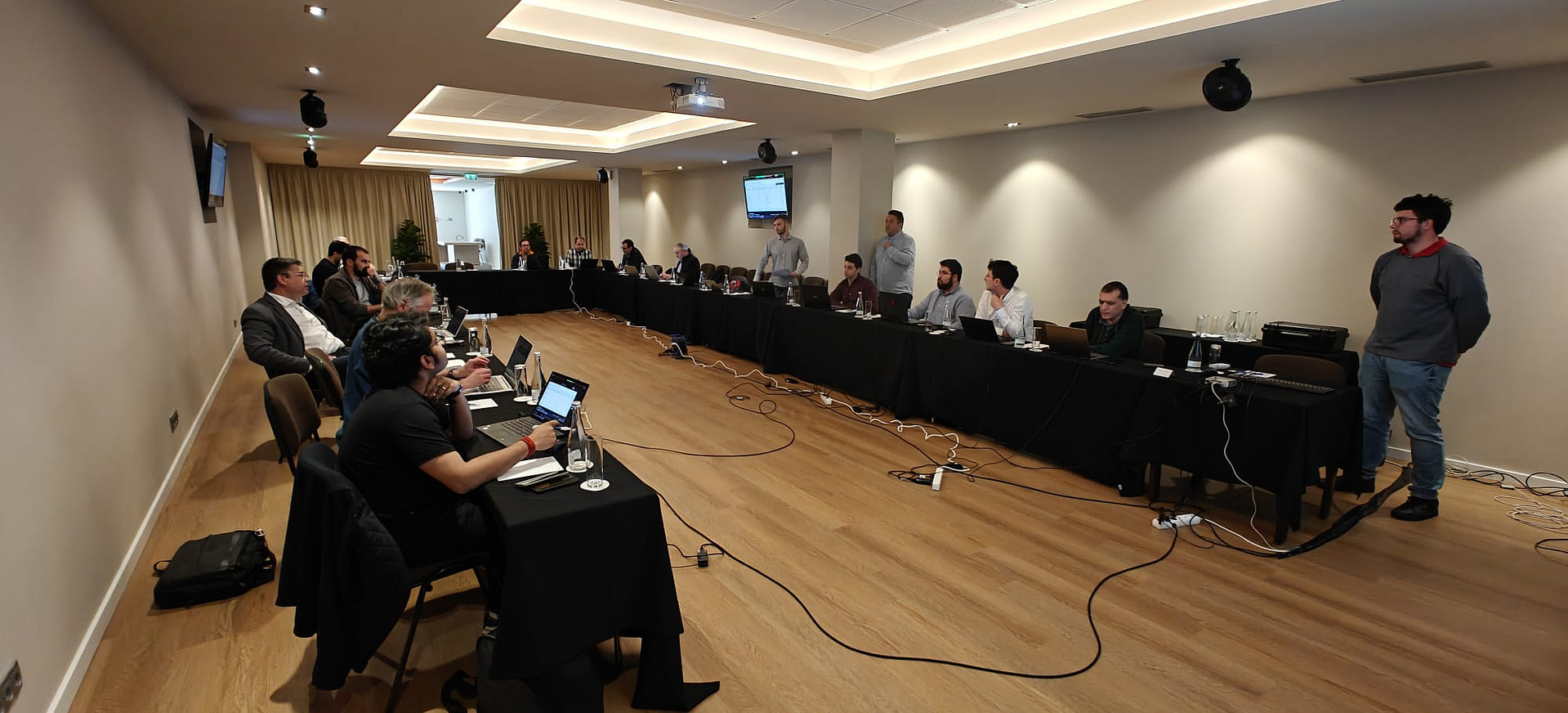April 2024

Project Highlights
The project is continuing the development of novel methods to enhance 6G networks, now with focus on the preparation of the first major project milestone, corresponding to the project middle term.
In the last period, several major deliverables were produced, whose approaches are not being refined towards a clearer definition of interfaces, functions, components and most relevant: use cases and applications. This is present in D2.2, which addresses specifications of the RIGOUROUS project’s use cases and the validation scenarios as well as the use cases functional requirements.
We adopted a comprehensive approach to achieve several objectives. In the area of defining and refining the use cases of RIGOROUS, we aimed to establish a clear and precise understanding of the practical applications of the project. We then shifted our focus to conducting an in-depth analysis of the security threat
landscape related to the project’s use cases. This involved identifying and organizing potential threats into coherent scenarios, providing a comprehensive view of the security challenges faced. Within each scenario, we explored the major security challenges in detail, aiming to gain a nuanced understanding of the security aspects inherent in the project. Effectively, our work focused in a detailed review of the following four distinct use cases, each offering high-level descriptions and associated security threat scenarios.
Use Case I – RIGOUROUS Platform Validation: Focused on validating the RIGOUROUS platform’s capability to enhance the flexibility of telecommunication infrastructures, this use case centers around the Orange 5G Romania lab. Addressing the transformative challenges of 6G, it employs a DevSecOps approach to integrate security seamlessly into the development lifecycle. Specifically addressing “Protecting 6G Services against Cyber Threats,” it assesses performance through three threat scenarios, confirming the platform’s effectiveness in identifying, responding to, and mitigating complex cyber threats to vital 6G infrastructure.
Use Case II – IoT-Based Smart City Platform: This use case revolves around a cloud-native IoT platform designed for smart city applications. Leveraging docker-based micro-services and Kubernetes, it manages diverse IoT data from gateways, supposedly spread across the city, supporting various communication technologies and devices. Security threat scenarios, including unauthorized communications and economical denial of service, are meticulously examined, emphasizing correlations with critical assets.
Use Case III – Utilities Management and Security (WINGS): This in-depth examination focuses on facilities management with a specific emphasis on data security. Threat scenarios encompass data security, DDOS attacks, code, and data injection, along with challenges posed by outdated systems. Asset correlations are highlighted to provide a comprehensive understanding.
Use Case IV – Public Protection and Disaster Relief (PPDR): Detailing scenarios involving PPDR scene and team provisioning, potential intrusions, and disclosure of device vulnerabilities. This case highlights the correlations between assets and critical elements that are at risk.
In order to enable the Use Cases, we created a mapping between the use cases and the RIGOUROUS’s high-level architecture, on one hand, and the project’s assets on another hand is provided. The RIGOUROUS project’s identified use cases create a strategic framework to address evolving telecommunications and security challenges, with each pivotal in shaping the project’s comprehensive approach.
For more detail, check D2.2 – RIGOUROUS Use Cases.
What happened recently
- Project had fruitful technical and coordination meetings in Coimbra, hosted by OneSource
- Catarina Silva, Vitor Cunha; João Paulo Barraca, and Paulo Salvador published the work “Privacy-Based Deployments: The Role of DevPrivOps in 6G Mobile Networks”, in the IEEE Communications and Magazine Journal
- Amir Javadpour, Forough Ja’fari, Tarik Taleb, Yue Zhao, Bin Yang, and Chafika Benzaïd published the work “Encryption as a Service for IoT: Opportunities, Challenges, and Solutions“, at the IEEE Internet of Things Journal
- Tarik Taleb, Chafika Benzaïd, Rami Akrem Addad, and Konstantinos Samdanis published the work “AI/ML for beyond 5G systems: Concepts, technology enablers & solutions“, at the Elsevier Computer Networks Journal
- Amir Javadpour, Forough Ja’fari, Tarik Taleb, Mohammad Shojafar, and Chafika Benzaïd, published the work “A comprehensive survey on cyber deception techniques to improve honeypot performance“, at the Elsevier Computers and Security Journal
- Jimena Andrade-Hoz,Qi Wang and Jose M. Alcaraz-Calero published the work “Infrastructure-Wide and Intent-Based Networking Dataset for 5G-and-beyond AI-Driven Autonomous Networks“, at the MDPI Sensors Journal
Follow us for further updates and interact





